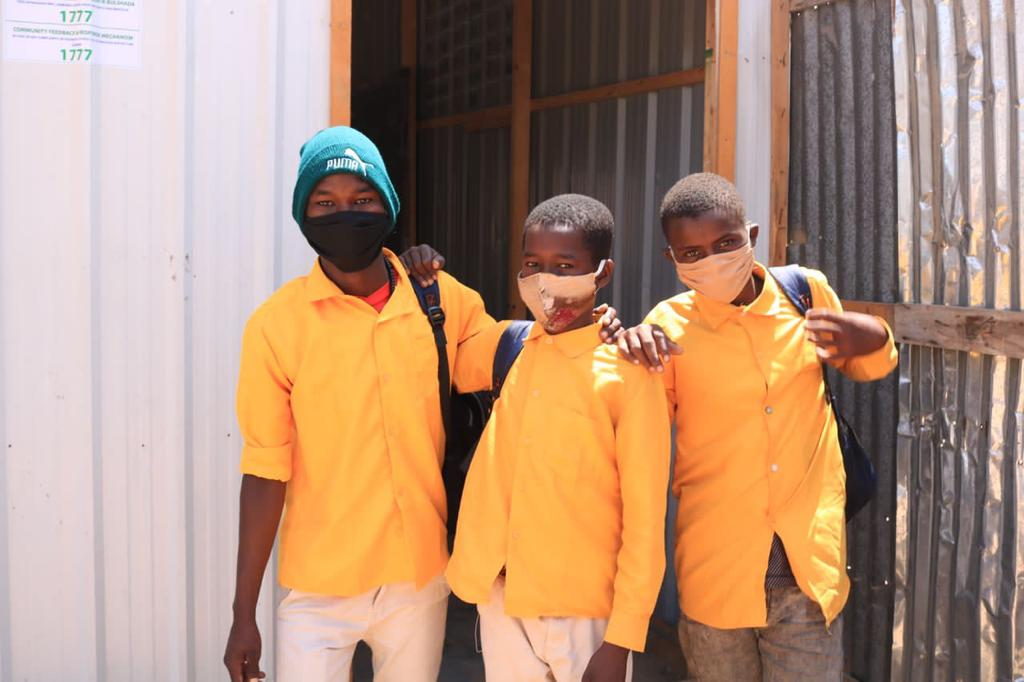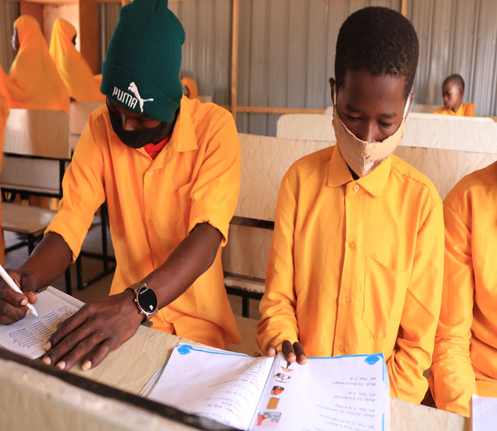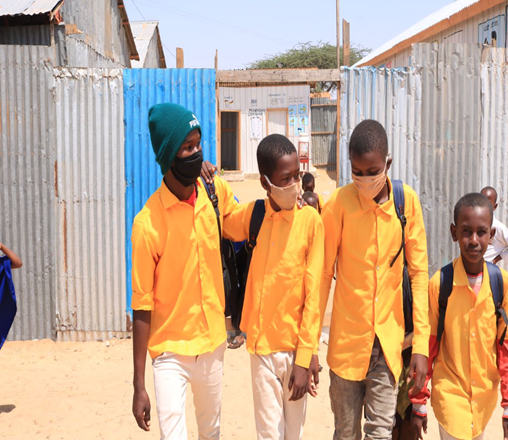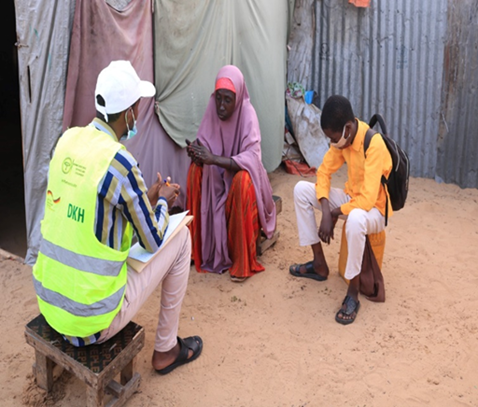The Education Cluster reports that about 1.4 million school-aged children in Somalia have been affected by the current drought; 45 percent of whom are girls who are also at risk of dropping out of school. In Somalia, enrolment and achievement rates are lower, and higher dropout rates among displaced children (Global Education Report, 2020). The lack of adequate and quality infrastructure in the Internally Displaced Persons (IDP) camps continue to impact access to education, especially for the poor and vulnerable children.
Hassan Abdikadir Ahmed is a twelve-year-old boy who attends Koshin Primary School, which is situated in Hadii Layaabo Yasinka IDP camp in Garesbaley district, Banadir region of Somalia. The class four student was enrolled to study at the school in December 2021. He lives in the IDP camp, with his mother, Maymun Abdi Hajji, and four siblings. His family moved from the Lower Shabelle region of Somalia to the Baidoa Yarey IDP camp and later on settled in the Hadii Layaabo Yasinka IDP camp. His Mother Maymun works as a porter in Mogadishu’s Bakara market to support her family.

Coming from a poor and displaced household, Hassan’s mother could not afford to pay his school fees. This caused him great distress as he would observe his peers in their school uniform heading to school each morning, all the while he was tasked by his mother with walking long distances searching for water for their household. Hassan and his two younger siblings have since been enrolled by his mother at Koshin Primary school and he works hard in his studies with the desire to make his mother proud.

Hassan is one of 800 students enrolled in four schools situated in the Garesbaley and Kahda districts. These schools are supported by NAPAD in partnership with Diakonie Katastrophenhilfe (DKH) and with funding from the Germany Federal Foreign Office (GFFO). This initiative aims at increasing equitable access to education, especially for vulnerable children and in turn, contribute to improved learning outcomes. The schools have been supported by NAPAD to establish age, gender, disability-friendly and equipped classrooms, and hygiene and sanitation facilities. The students have been provided with school meals, school fees, and teaching and learning materials.
“I am glad that I am in school and learning from qualified teachers, I am also happy I get to have two meals a day at school. This enables me to concentrate on my studies .” Reports Hassan.

“I thank the Almighty Allah for my five children, three of whom are now attending and receiving meals from school, which has relieved us of the constant worry of where to get them food.” Maymun Hajji reports

